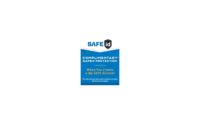UPDATE - March 31, 2017:
Alder provided the following statement regarding the trial and related events: “Alder is committed to providing our customers the highest level of customer service in the industry. While we respect the legal process, we strongly believe the evidence presented at trial does not support the verdict. …”
Alder’s statement went on to claim that videos shown to the jury were not actual training videos and that jurors were not shown all critical evidence.
The statement concluded, “APA [Alder] is pursuing all legal options to respond to the verdict and judgment.”
*****
After a two-week trial in Anchorage, Alaska, the United States District Court for the District of Alaska entered a judgment for just under $1.5 million in compensatory and punitive damages to the plaintiff, Security Alarm Financing Enterprises LP (SAFE), in its case against defendants, Alder Holdings LLC, Alarm Protection Technology LLC, Alarm Protection Technology Alaska LLC, and Alarm Protection Alaska LLC.
The unanimous (8-0) federal jury found the defendants liable on all four of SAFE’s causes of action, including false association, unfair or deceptive trade acts or practices, misappropriation of trade secrets and defamation.
SAFE Security, ranked No. 13 on the SDM 100, filed the lawsuit in mid-2013. “We were actually ready to go to trial a couple of years ago but the defendants were not, so we agreed to a trial continuance,” said SAFE’s lead counsel Bob Sallander of Greenan, Peffer, Sallander & Lally LLP. Sallander explained that the defendant added counsel in the middle of the process; the lawsuit, however, was limited to conduct that took place between February 2013 and December 31, 2015.
At the time of the incidents, Alder did not yet exist; the defendant was simply called APT. Sallander explained that beginning in February 2013, SAFE acquired a number of alarm system monitoring accounts from Pinnacle; the acquisition included accounts all over the U.S. and in Canada, but SAFE’s losses focused on the approximately 1,450 accounts SAFE acquired from Pinnacle in 2013.
“In the spring of 2013, SAFE noticed a startling increase in attrition among these accounts,” Sallander said, “and the cancellations were under what I called and said to the jury, suspicious circumstances.
“Those circumstances involved batches of cancellations coming in using similar wording and on the same kind of paper. A variety of these things tipped SAFE off that they might be the target of something there in Alaska. Our investigation revealed that there were, in fact, targeted poachings by APT, Alder, and the related entities.”
“Former Pinnacle salespeople who had sold in Alaska went to work for APT and started going back to their customers and recruiting them away from SAFE and to APT in violation of the non-solicitation provisions in their agreements,” Sallander said.
“In the end the jury found that APT had engaged in four kinds of wrongful conduct, which we can characterize by a violation of the federal Lanham Act. That’s what we called the false affiliation case. They were claiming they were taking over for SAFE or claiming that they were there to upgrade the system, implying that they were from SAFE.
“The jury found unanimously that APT had engaged in that kind of conduct, and in fact we showed training videos to the jury where Adam Schanz [owner of Alder/APT] trained on some of these kinds of approaches.”
Sallander said there was another claim for basically the same kind of conduct under Alaska’s version of the Uniform Trade Practices Act (UTPA) along with a claim of defamation because APT would tell customers SAFE was going bankrupt or going out of business. Additionally, Sallander said APT engaged in several other unfair trade practices such as misrepresenting the bases for supposed discounts that they were giving.
“We tried [the case] for just under two weeks, and a jury deliberated for two days and found in favor of SAFE on all counts and also found that SAFE had proved outrageous conduct by APT by clear and convincing evidence,” he said.
Regarding the multiple names of the defendant, Sallander explained that this situation fell under the category of alter ego. “The purpose of an alter ego claim is to pierce the corporate veil — to basically say to the court or to the jury that you should not recognize the separateness of these companies, but you should treat them all as one, and that’s what the jury did here: they found Alarm Protection Alaska, Alarm Protection Technology Alaska, Alarm Protection Technology, and then the newly formed Alder, were all alter egos of each other. The precise language used in the verdict form was that they were mere instrumentalities, which made them all liable for the conduct,” Sallander said.
The judgment was entered by the court on March 23; the jury verdict came out on March 20.
SDM reached out to Alder but was told the proper person to speak with was out of the country and unavailable for comment at this time.







